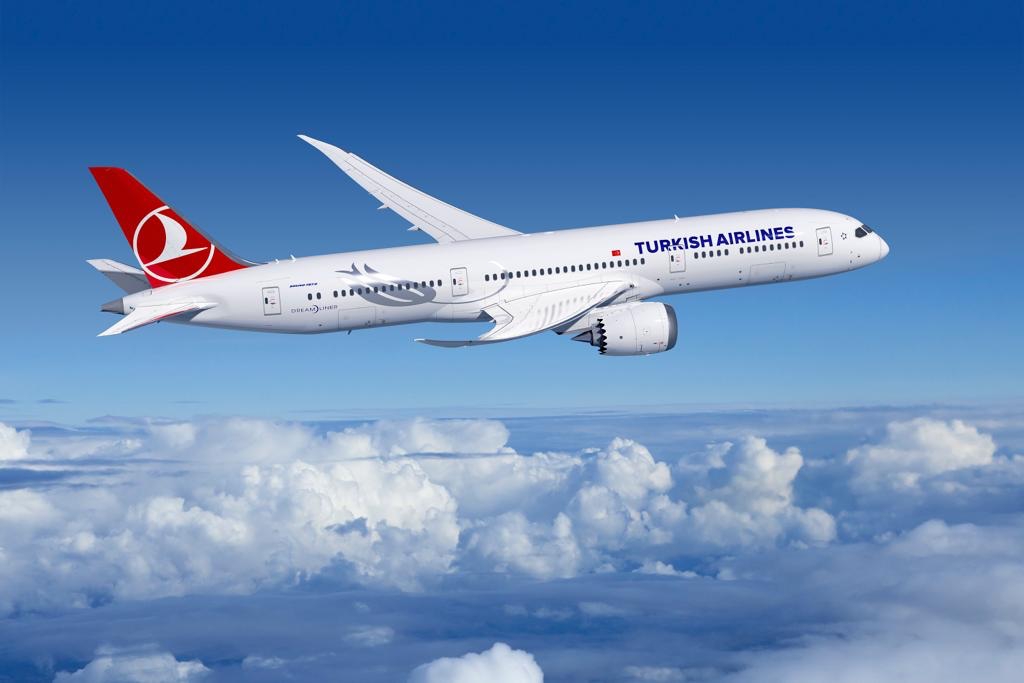Turkish Airlines recorded its highest-ever first-quarter revenue

Turkish Airlines finished the first quarter of the year with 233 million USD Net Profit with strong recovery on international demand despite adverse impact of devastating earthquakes.
Turkish Airlines demonstrated its ability to navigate through a challenging operating environment during the first quarter of 2023, which was marked by devastating earthquakes centered in Kahramanmaraş – one of the worst disasters in Türkiye’s history. Through its 90 years of experience and successful crisis management, Turkish Airlines recorded net profit for the seventh consecutive quarter despite the negative circumstances surrounding our industry since 2020 with the beginning of the pandemic.
In the first quarter, the airline achieved its highest-ever first-quarter revenue, reaching 4.4 billion USD with an increase of 43% year-over-year. Accounting 84% of the total revenue, passenger revenues rose by 83% and recorded over 3.6 billion USD.
With one of the youngest and most modern fleet of 411 aircraft, Turkish Airlines increased its fleet size and workforce by 10% compared to the same period of last year. In the first quarter of 2023, the airline carried over 17 million passengers in total, with a domestic load factor of 80.1% and an international load factor of 81.4%. Despite the negative effects of global inflationary pressures on costs, EBITDAR (Earnings Before Interest, Taxes, Depreciation, Amortization, and Rent), which demonstrates the cash generation ability of the company, was approximately 770 million USD on the back of strong revenue growth.
While global international airline capacity in the first quarter of 2023 was 19% below that of 2019 according to data published by airline data provider OAG, Turkish Airlines was among one of the few airlines in the industry by exceeding its 2019 international capacity by 26%. As Europe’s leading network carrier in terms of daily number of flights operated for the last three years according to the European Organization for the Safety of Air Navigation (EUROCONTROL), Turkish Airlines also achieved a notable growth on a global scale by becoming the network carrier offering more international frequency than any other. As a result of investments in our country’s aviation infrastructure, Istanbul Airport became the busiest airport in Europe in the first quarter.
Turkish Airlines has been a major contributor to Türkiye’s economy and employment by growing significantly above the industry averages in terms of capacity, number of passengers and profitability over the last two decades. To maintain this trajectory, the national flag carrier has announced its 2033 strategy for its centenary aiming to double the fleet and passenger numbers by setting targets for enhancing the passenger experience, digitalization, and sustainability efforts.
As Türkiye’s flag carrier, Turkish Airlines responded swiftly to the devastating earthquakes centered in Kahramanmaraş. In February and May, the airline evacuated 430 thousand citizens, transported 433 thousand people along with search&rescue teams, and sent over 29 thousand tons of aid materials to the disaster areas. To contribute to the recovery efforts, the airline also donated 2 billion TL in cash aid to the Disaster and Emergency Management Presidency of the Ministry of Internal Affairs (AFAD). Additionally, Turkish Airlines pledged to provide support for building 1,000 houses and employ 1,000 personnel from 1,000 families impacted by the earthquakes.
Employing over 75 thousand staff with its subsidiaries, Turkish Airlines continues to proudly fly our flag among the giants of the aviation as a brand that steers the industry with its unique flight network, modern fleet, superior service quality, and successful financial performance.


Comments are closed.